Philanthropy and Volunteerism: Social Work
Dorothea Hirschfeld
Too old, not properly educated, a member of the Social-Democrat Party, and a Jewish woman, Dorothea Hirschfeld nevertheless succeeded in entering the civil service at the age of forty-three. She directed the Berlin Center for Social Work and Care of the Poor in Berlin from 1924 to 1929, and despite being pushed out of work by the Nazis, survived deportation and remained in Germany until her death in 1966.
Holocaust Survivors: Rescue and Resettlement in the United States
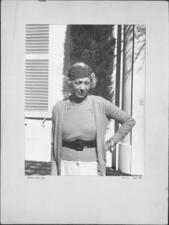
Blanche Frank Ittleson
Blanche Frank Ittleson’s pioneering work in treating and teaching intellectually disabled and emotionally disturbed children opened new possibilities for struggling children and their families.
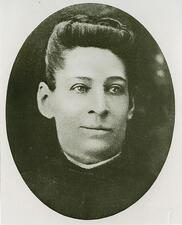
Frances Wisebart Jacobs
Francis Wisebart Jacobs helped transform the fledgling state of Colorado through her organization of charities and hospitals.
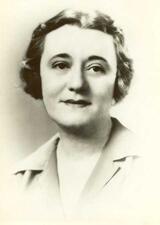
Laura Margolis Jarblum
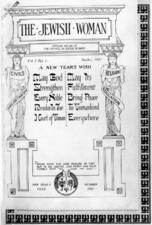
The Jewish Woman
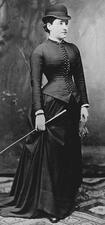
Juedischer Frauenbund (The League of Jewish Women)
Founded in 1904, The League of Jewish Women pursued secular German feminist goals while maintaining a strong sense of Jewish identity. The League supported vulnerable women through practical social reforms while fighting for political power within the German Jewish community. It saw employment opportunities as essential to women’s economic, psychological, and emotional independence.
Dorothy C. Kahn
During the Great Depression, Dorothy C. Kahn helped pioneer social work as a service provided by the government to all who needed it. Kahn developed, implemented, and advocated for social welfare programs and policies whose underlying principles upheld her deepest beliefs about what social welfare could mean in a democracy.
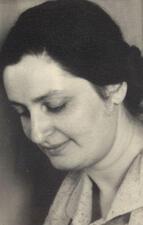
Hannah Karminski
During the mid-1920s and the 1930s in Germany, Hannah Karminski served as secretary of the League of Jewish Women and, from 1924 to 1938, as editor of its newsletter. After the forced liquidation of the League in 1938, Karminski remained in Germany and continued her work in the Reich Association of Jews in Germany, assisting with the kindertransports and welfare. She was deported to Auschwitz and murdered in 1942.

Rhoda Kaufman
C. Marian Kohn
A product of the Progressive Era and conservative Philadelphia German Jewish society, C. Marian Kohn was a social worker and tireless advocate for working women in the early twentieth century.
Esther Loeb Kohn
Esther Loeb Kohn helped bridge the gap between Chicago’s volunteer and professional social workers and spent thirty years running the Hull House settlement whenever founder Jane Addams was away on her frequent travels.
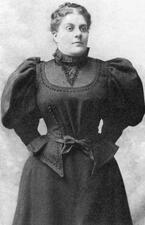
Rebekah Bettelheim Kohut
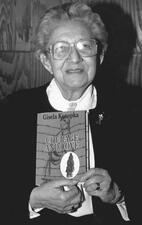
Gisela Peiper Konopka
Berlin-born Gisela Konopka built an international reputation as a group social worker and expert on youth issues. Lauded for her involvement in the rebuilding of social services and education in post-war Germany and beloved by her students at the University of Minnesota, Konopka received more than 42 awards in her lifetime.
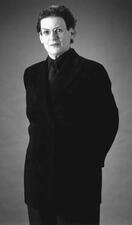
Phyllis Lambert
Phyllis Lambert is a Canadian architect and philanthropist. After receiving her M.S. in architecture in 1963, she established herself as a leader in urban conservation and public architecture. She has received many awards and honors, including the Gold Medal from the Royal Architecture Institute of Canada in 1991—Canada’s most prestigious architectural award.
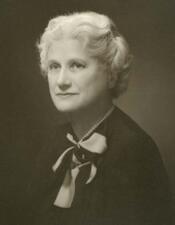
Edith Altschul Lehman
Known to many as the cultured wife of one of New York’s most popular governors and senators, Edith Altschul Lehman was in her own right a passionate social activist and philanthropist. She funded endeavors from building schools in Israel to creating a children’s zoo in Central Park.
Jennie Davidson Levitt
Jennie Davidson Levitt, daughter of Jewish philanthropists Saul and Mary (Cohen) Davidson, continued her family’s tradition of activism and philanthropy with her work for Jewish organizations. She helped rescue Jewish children during the war, and later lobbied for better medical and psychiatric services.
Alice Springer Fleisher Liveright
Social worker Alice Springer Fleisher Liveright devoted much of her life to working for equal rights for women and African Americans, and for social welfare for children and poor adults. Passionate in her quest for social justice, she served as president of the Juvenile Aid Society, president of the Philadelphia Conference of Social Work, and as the Pennsylvania State Secretary of Welfare.
Johanna Loeb
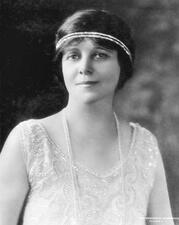
Sophie Irene Simon Loeb
At a time when widowed mothers often had no way to support their children, Sophie Irene Simon Loeb helped create support systems for needy children and their mothers. Loeb was one of many women to enter the political arena through reform work, using her life experience and a personalized approach.
Fannie Eller Lorber
When her community became a mecca for adults suffering from tuberculosis, Fannie Eller Lorber created a Jewish children’s home for those who had no one else to care for them. Lorber epitomized the volunteer spirit of urban Jewish women in the American West.
Minnie Dessau Louis
Minnie Low
Known as the “Jane Addams of the Jews,” Minnie Low was a leader in the Jewish social service community. At a time when social work usually meant wealthy people donating to the poor, Low pushed for new kinds of aid such as vocational training and loans that made the needy self–sufficient.
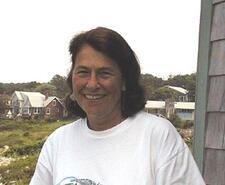
Sally Mack
Emma B. Mandl
Emma B. Mandl immigrated to the United States at age fifteen and helped found the Baron Hirsch Women’s Club, a major Chicago philanthropic organization. Through the club, where she served as president, Mandl created and led vital institutions for Jewish East European immigrants in Chicago, from orphanages to trade schools to tuberculosis wards.


